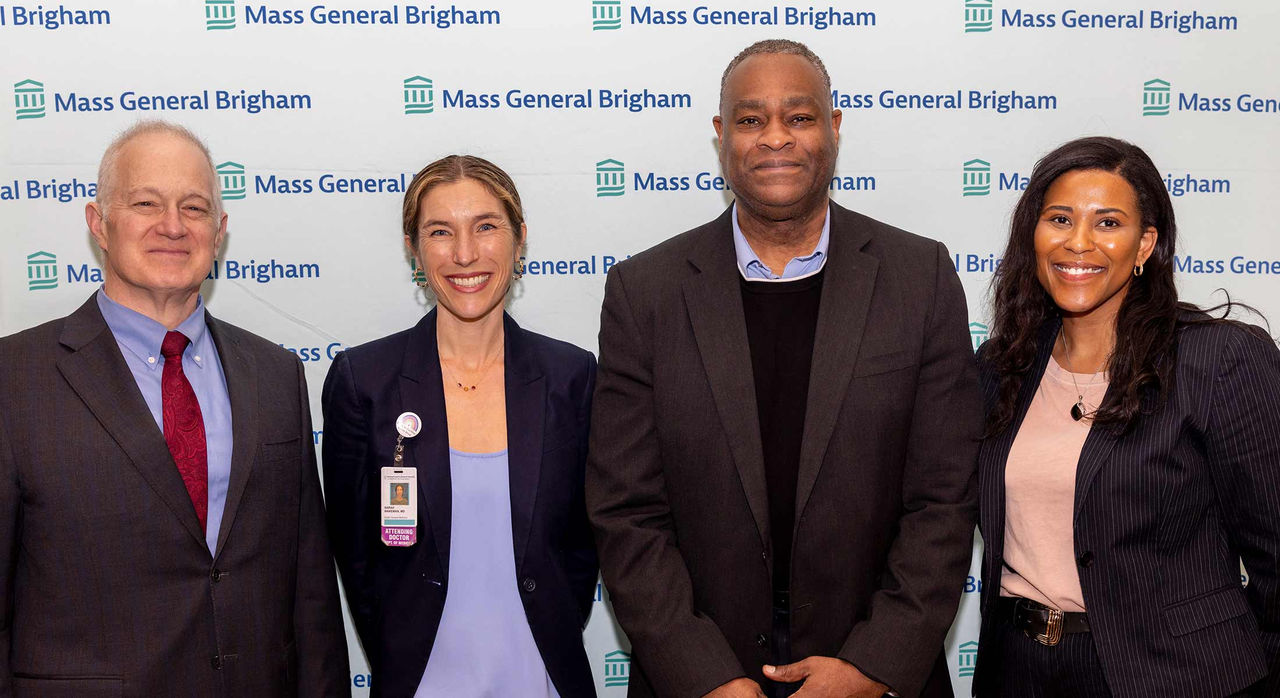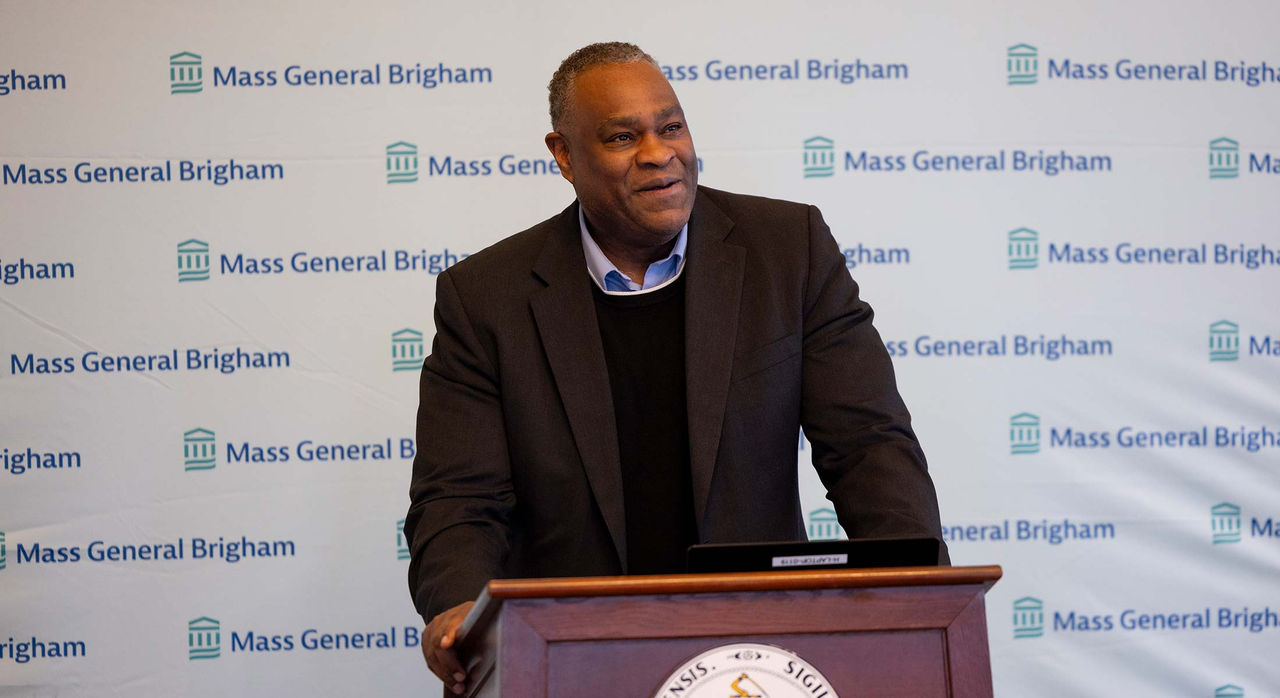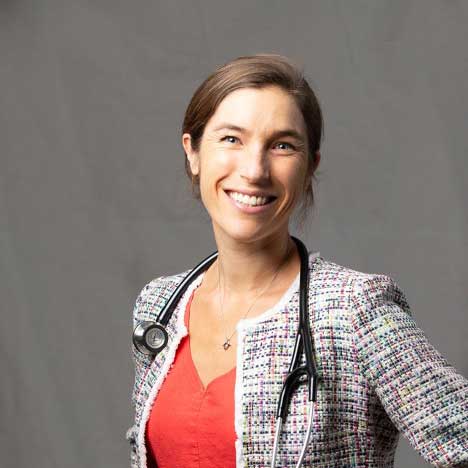-
- Find Care
-
- Visitor Information
- Find a Location
- Shuttles
- Visitor Policies
-
-
- Our Virtual Care Options
- Virtual Urgent Care
- Virtual Visits for Primary & Specialty Care
- Online Second Opinions
- Participate in Research
-
- Contact us
-
- For Innovators
- Commercialization Guide for Innovators
-
-
- Research News
- Alzheimer's Disease
- Artificial Intelligence
-
- Overview
-
- Overview
- Getting Started
- New to Mass General Brigham
- International Patient Services
- What Is Patient Gateway?
- Planning Your Visit
- Find a Doctor (opens link in new tab)
- Appointments
- Patient Resources
- Health & Wellness
- Flu, COVID-19, & RSV
- Billing & Insurance
- Financial Assistance
- Medicare and MassHealth ACOs
- Participate in Research
- Educational Resources
- Visitor Information
- Find a Location
- Shuttles
- Visitor Policies
- Find Care
-
- Overview
- Our Virtual Care Options
- Virtual Urgent Care
- Virtual Visits for Primary & Specialty Care
- Online Second Opinions
-
- Overview
- Participate in Research
-
- Overview
- About Innovation
- About
- Team
- News
- For Industry
- Venture Capital and Investments
- World Medical Innovation Forum (opens link in new tab)
- Featured Licensing Opportunities
- For Innovators
- Commercialization Guide for Innovators
- Contact us
-
- Overview
- Information for Researchers
- Compliance Office
- Research Cores
- Clinical Trials
- Advisory Services
- Featured Research
- Two Centuries of Breakthroughs
- Advances in Motion (opens link in new tab)
- Brigham on a Mission (opens link in new tab)
- Gene and Cell Therapy Institute
- Research News
- Alzheimer's Disease
- Artificial Intelligence
-
- Overview
-
- Overview
- Residency & fellowship programs
- Brigham and Women's Hospital
- Massachusetts General Hospital
- Mass Eye and Ear
- Newton-Wellesley Hospital
- Salem Hospital
- Integrated Mass General Brigham Programs
- Centers of Expertise
- Global & Community Health
- Health Policy & Management
- Healthcare Quality & Patient Safey
- Medical Education
- For trainees
- Prospective trainees
- Incoming trainees
- Current trainees
- Continuing Professional Development
Centering Equity in Substance Use Disorder
 Sarah E. Wakeman, MD, medical director for Substance Use Disorder at Mass General Brigham, Gene Lambert, MD, MBA, medical director, Addiction Consult Team, Massachusetts General Hospital, and Jasmine Irvin, senior program manager for Health Equity, Mass General Program in Substance Use and Addiction Services
Sarah E. Wakeman, MD, medical director for Substance Use Disorder at Mass General Brigham, Gene Lambert, MD, MBA, medical director, Addiction Consult Team, Massachusetts General Hospital, and Jasmine Irvin, senior program manager for Health Equity, Mass General Program in Substance Use and Addiction Services
Substance use disorder (SUD) impacts people and families throughout the communities Mass General Brigham serves. The scope of this public health challenge requires a comprehensive approach, with a focus on equity and partnership with government and community organizations. On April 3, Mass General Brigham leaders discussed the full spectrum of our SUD care model in a forum at the Massachusetts State House.
The presentation was titled, “Mass General Brigham’s Strategy on Substance Use Disorder: Centering Equity and Partnering with Communities.” It was the latest in a series of Mass General Brigham educational events hosted in partnership with legislative leaders on Beacon Hill. The presentation was led by Sarah Wakeman, MD, senior medical director of Substance Use Disorder for Mass General Brigham.
Dr. Wakeman and other experts from Mass General Brigham including, Gene Lambert, MD, MBA, medical director, Addiction Consult Team, Massachusetts General Hospital and Jasmine Irvin, senior program manager for Health Equity, Mass General Program in Substance Use and Addiction Services, provided an overview of the SUD services provided by Mass General Brigham: inpatient consult teams, community health services, Bridge Clinics, the integration of SUD treatment into primary care, and perinatal SUD programs. The presentation focused on how this care model is deeply focused on equity as part of the United Against Racism strategy.
The forum was hosted in partnership with the co-chairs of the Massachusetts Legislature’s Joint Committee on Mental Health, Substance Use and Recovery, Sen. John C. Velis and Rep. Adrian Madaro, who also co-hosted a Mass General Brigham forum on youth mental health last fall.
Approaching substance use care through an equity lens
The event began with opening remarks from Sen. Velis and Rep. Madaro, who underscored the importance of the Commonwealth partnering with provider organizations like Mass General Brigham and praised the “cutting edge work” done by our system in this space. Rep. Madaro continued, “What I appreciate about [Mass General Brigham’s] work is that they recognize that not all communities deal with this issue in the same way,” and highlighted Mass General Brigham’s commitment to equity in SUD care.
Following that introduction, David F. M. Brown, MD, president of Academic Medical Centers for Mass General Brigham, discussed the systemwide commitment to substance use disorder and acknowledged that substance use disorder is a chronic disease and must be treated as such.
Dr. Brown introduced Dr. Wakeman, whose presentation began with a look at current overdose death trends, which have continued to increase and contributed to a decrease in overall life expectancy. Nationally and in Massachusetts, there are significant racial and ethnic disparities in overdose mortality—with the highest rates occurring among American Indian, Black, and Hispanic individuals.
Dr. Wakeman discussed Mass General Brigham’s formalized approach to addressing health inequities, which focuses on discrete goals:
Increasing clinic visit rates for Black, Hispanic, and non-English speaking patients
Reducing gaps in treatment rates for buprenorphine, a life-saving medication for opioid use disorder
Reducing overdose mortality and eliminating inequities
 Sarah Wakeman, MD, medical director for Substance Use Disorder at Mass General Brigham
Sarah Wakeman, MD, medical director for Substance Use Disorder at Mass General Brigham
Mass General Brigham’s multi-pronged strategy
To achieve these goals, Mass General Brigham is employing a multi-pronged strategy—focusing on everything from standardizing systemwide guidelines to ensure consistent care across settings, to building community-embedded mobile and street outreach care models. Dr. Wakeman underscored the importance of creating partnerships with community organizations and engaging in external advocacy to boost awareness and reduce stigma.
Dr. Wakeman emphasized the importance of Bridge Clinics, which launched in 2016 as transitional outpatient clinics to “bridge” SUD care between community and inpatient settings. Today, Dr. Wakeman said, Bridge Clinics utilize a “low-barrier, welcoming, person-centered, ‘come-as-you-are’ drop in model of care, where we want to engage with people at the moment where the rest of the system may have failed them.”
 Gene Lambert, MD, MBA, medical director, Addiction Consult Team, Massachusetts General Hospital
Gene Lambert, MD, MBA, medical director, Addiction Consult Team, Massachusetts General Hospital
Partnering across communities
Underscoring Mass General Brigham’s commitment to partnering with community-based organizations, in December, a $4.8 million investment was announced with the Massachusetts League of Community Health Centers to support six SUD programs at community health centers in the greater Boston area.
After Dr. Wakeman’s presentation, Dr. Lambert provided a detailed analysis of the striking impact of racial disparities in SUD deaths among Black, Hispanic, and American Indian communities, including a detailed breakdown of how these trends play out in Boston, where neighborhoods like Dorchester, Roxbury, and the South End are hardest hit.
Dr. Lambert also described the work of inpatient and community-based teams to raise awareness, engage with community members, connect people to care, and provide treatment.
Jasmine Irvin, senior program manager, Health Equity, Mass General Program in Substance Use and Addiction Services, presented on community health SUD strategy, which aims to make SUD treatment as accessible as possible. Irvin emphasized the role of peer recovery coaching—in which people who are in recovery themselves provide support to patients with SUD, leaning on their common lived experiences.
Both Irvin and Dr. Lambert also highlighted Mass General Brigham’s ongoing commitment to providing access to SUD care in neighborhoods like Roxbury and deepening partnerships with community-based businesses and organizations like the Metro Boston Alive Recovery and Resource Center.
